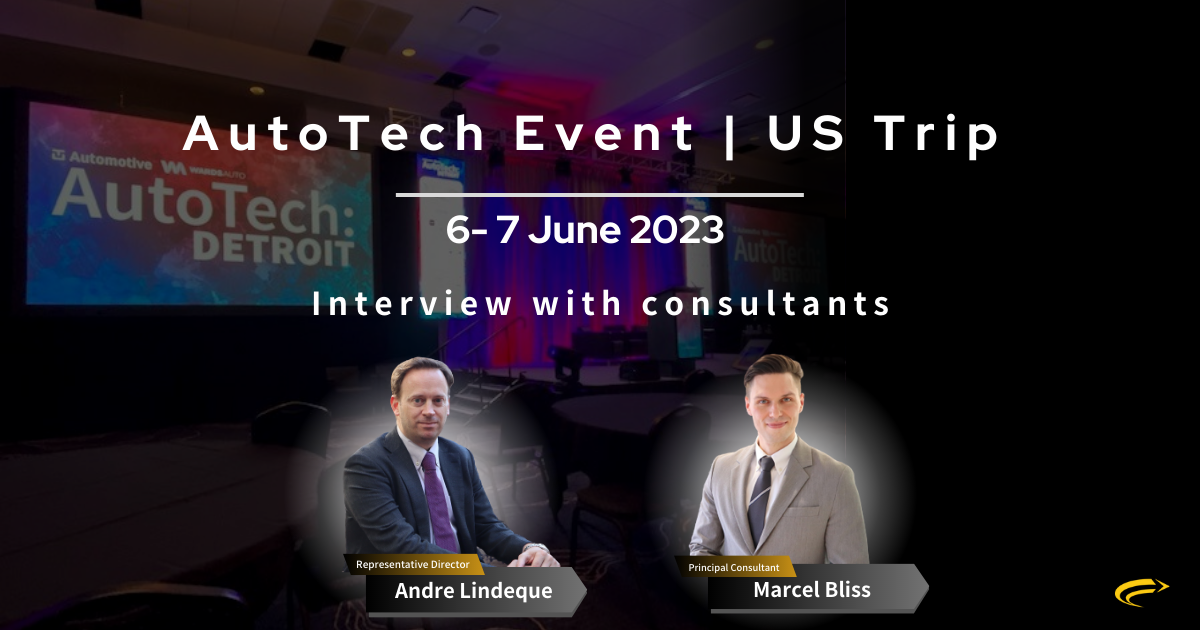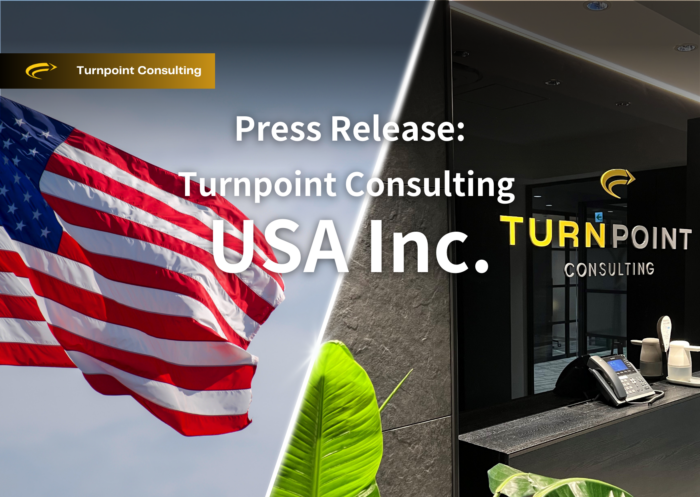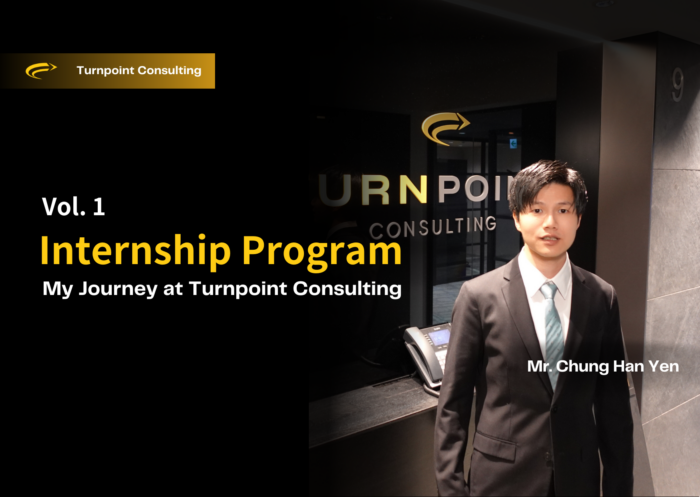27 Jul Consultant Interview 『Trends in the Automotive Industry from AutoTech Detroit』

To explore the forefront of the automotive industry, our consultants, Andre and Marcel, participated in the “Auto Tech Detroit” event held in Detroit, USA, on June 7th and 8th, 2023. This event brought together top companies and engineers from the automotive industry, providing insights into the latest automotive technologies and innovations. We conducted an interview with Andre and Marcel to gain valuable insights and experiences they obtained during the event. Let’s find out how they felt about this unique opportunity to glimpse the evolution of the automotive industry.
How was your experience participating in the automotive event in the United States? Could you tell me about the scale and content of the event?
I've been recruiting in the Japan market now for 13 years so I've attended many expositions over the years in Japan and mostly in Tokyo. Firstly I noticed that the scale of the event was somewhat smaller than the Automotive Engineering Exposition run by JSAE (Society of Automotive Engineers of Japan Inc) or Automotive World (RX Japan Inc) but the smaller size still attracted 2,500+ industry stakeholders for two full days of focused B2B networking with many opportunities to discuss, learn from fireside chats and keynote speeches.
This year the AutoTech: Detroit event really focused in on software-defined, Connectivity and UX and we were able to get a great insight into the US market and trends happening in the automotive industry as well as to meet some great people in our industry for networking.
It was a great experience, as it was very interesting to see the differences in not only networking, but also industry trends in the US in comparison to the Japanese market. It really enabled me to widen my horizon, gather new knowledge and keep my mind sharp for future trends. The main focus of this times Autotech was ADAS, UX and Connected Car with several representatives of companies such as Stellantis, Continental, T-Mobile and also smaller start-ups.
This event was not or the larger public and therefore on a smaller scale, so it attracted mainly industry professionals from suppliers, OEMS and other automotive related industries. Apart from a small exhibition, there were several discussions on stage where speakers were able to exchange their opinions and ideas. In case of open questions, you could actually get in touch with the speakers during the event to exchange contacts and deepen your understanding by asking additional information. The face-to-face contact opportunity was something that you rarely see at the bigger automotive shows.
What are the latest trends and technologies in the US automotive industry?
One of the take aways I had from this event was the truly growing importance of connectivity. By 2030 globally it is predicted that 22% of vehicles will be electric and 20% will be Level 3+ capable but 98% of vehicles will have connectivity. This means that connectivity is going to be pervasive far quicker than electric vehicles and autonomous vehicles which makes it a very critical area that OEMs need to understand if they are going to create new business models in the market.
The telecommunication carriers are really going to be important to create a seamless experience for the drivers who may not want to be tied into a specific carrier for a specific vehicle but to be able to use their phone carrier also as their service provider in the vehicle.
Connectivity brings together new players in the mobility market including suppliers, software companies and telecommunication companies and its more important than ever for OEMs to collaborate with this eco-system of suppliers and service providers. Partnerships will be ever increasing in importance.
Software Defined vehicles are of course not only related to connectivity but everything in the vehicle but this trend will also change how aftermarket service is provided and the customer experience from remote diagnostics, predictive maintenance, intelligent navigation, emergency roadside services and cybersecurity.
Connectivity is certainly a very big trend that is going to become more important in the future. Due to that development, a lot of OEMs in the US do not necessarily consider themselves as automotive companies anymore, but redefine themselves as mobility and software companies.
This obviously changes not their hiring needs and their dynamic with the suppliers, but also the way they try to collaborate with non-automotive firms: Software engineers are in high demand to implement and execute the OEMs connected car plans, OEMs are working closer with suppliers to forward technology and telecommunication firms as well as entertainment companies are already a vital partner for many OEMs in the US. This is also the reason, why representatives of the telecommunications giants AT&T, T-Mobile and Verizon were the main speakers during the show.
How do they differ from the Japanese market? | What Japan market can learn from US market?
It will be interesting to see if this conservative approach, which in the past served the Japanese OEMs very well because of their obsession of quality and safety of their products, will also be able to keep or grow their market share in the industry.
I do think the Japanese OEMs should be paying close attention to the US market right now at a time where Tesla has been taking market share from Japanese OEMs in the US and make a strategic decision on whether to change course and be bolder or to stick to their more conservative approach. In a world driven by software however, speed, agility and first mover advantage can make all the difference, it's risky not to build up a more dynamic aggressive approach to meet the changing demands of the consumers in the automotive and mobility markets.
We already see Japanese OEMs and importers to build the infrastructure and make the necessary agreements with telecommunication carriers to implement connected car strategies and I am certain a majority of car drivers are interested in connectivity, but overall the trend is still in its infancy and unless automotive firms in Japan start surveys and marketing campaigns to promote their services, it will still be a long road ahead. Overall, I think there needs to be a more bold strategy moving forward not only in regard to connected car, but also for the sake of the entire automotive industry considering both recent difficulties and trends.
Participating in the “Auto Tech Detroit” event provided us with a glimpse into the future of the automotive industry from the perspectives of Andre and Marcel. We learned about the evolution of innovative technologies, the commitment to sustainability, and the emerging outlook in the highly competitive automotive sector. This experience reaffirmed that the automotive industry is continuously evolving.
The event showcased various companies proposing groundbreaking approaches and collaborating towards a sustainable future, contributing to the growth of the industry.
Attending events like “Auto Tech Detroit” offers opportunities to explore new possibilities and build valuable connections within the automotive industry.
We look forward to continuing our participation in such invaluable events and contributing to the advancement of the industry.




